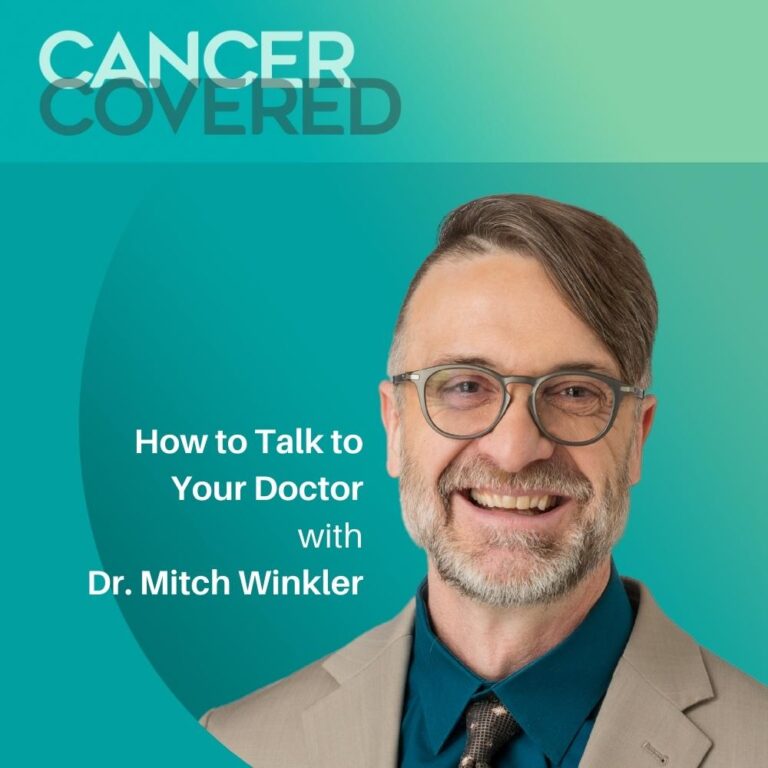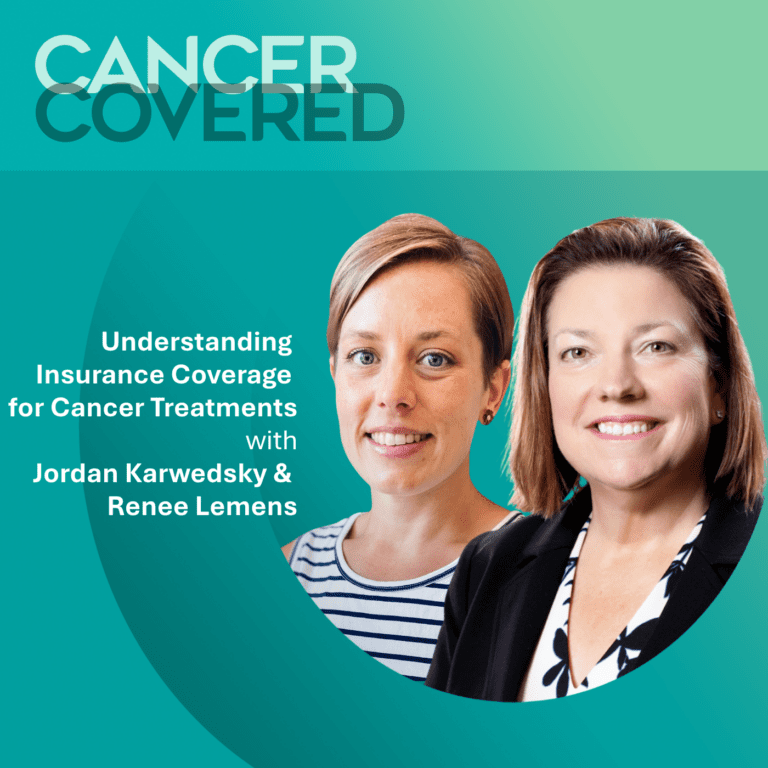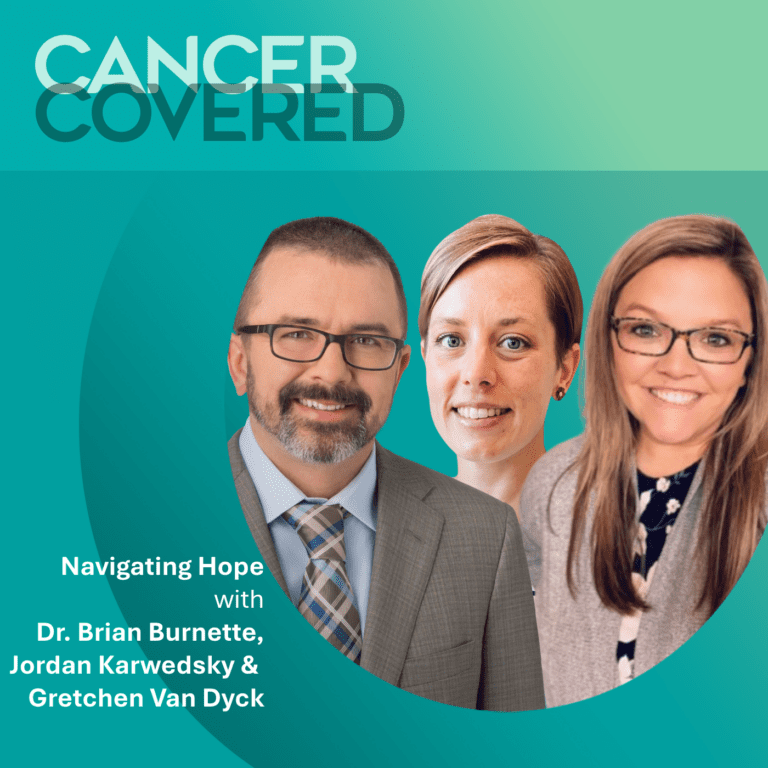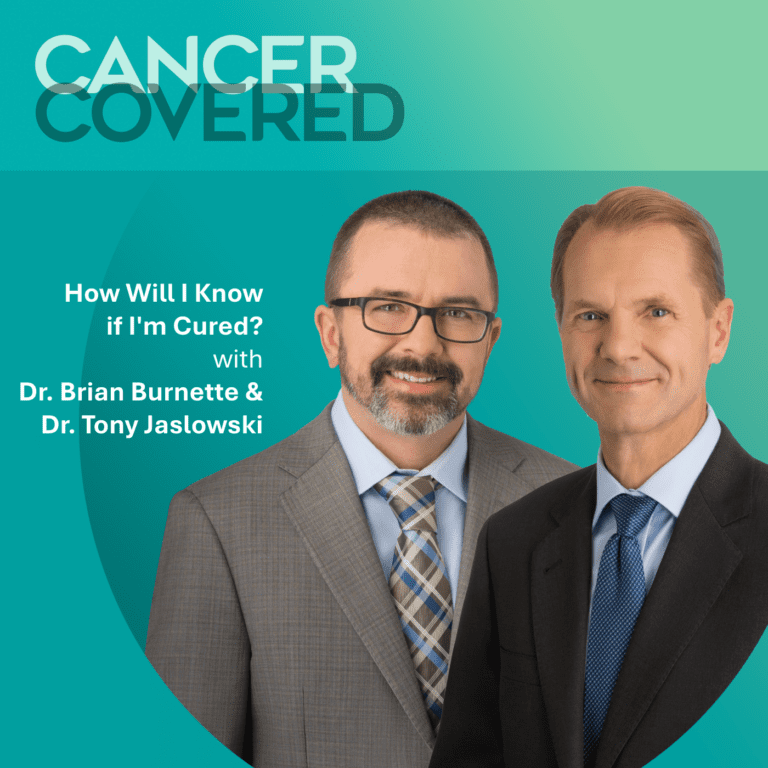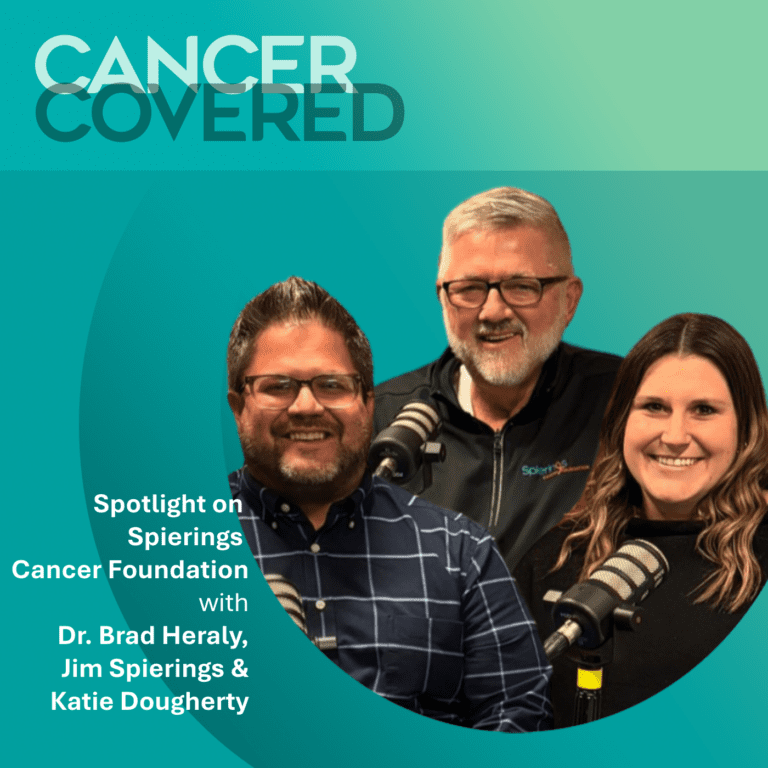Podcast: Play in new window | Download
“Communication is a collaborative endeavor. It requires clarification, resetting, and recalibration all the
way through the therapeutic relationship, at every level of where you connect with your healthcare team.”
– Dr. Mitch Winkler
Good healthcare starts with good communication. But despite good intentions, patients often visit their oncologists with a huge knowledge gap and a lot of anxiety. They get a lot of information thrown at them and have to learn very quickly at a time when they may not be in the best mental state to absorb a lot of information. Coupling the fact that anxiety typically impedes learning significantly with a doctor’s often limited amount of time, we often lack the critical communications training or skills – and even struggle ourselves – to bridge that gap.
In this episode, I discuss how to bridge the communication gap between newly diagnosed patients and their oncologists and share tips on how patients can approach common conversations in the cancer clinic. I discuss how and when you should ask for a second opinion and why you shouldn’t be afraid to ask for one. I explain why you shouldn’t ask about what ‘stage’ your cancer is in and why you should, instead, ask about the prognosis of your cancer. I also discuss why you shouldn’t feel self-conscious about asking for more information, asking basic questions, or asking your doctor for further clarification about your diagnosis and why you should only ask questions when you truly want a direct answer.
This week on Cancer Covered:
- How to ask about treatment-related side effects
- How and when to ask for a second opinion
- Why you should ask about the prognosis of your cancer diagnosis
- Why you shouldn’t ask about your life expectancy
- Why you shouldn’t feel self-conscious about asking basic questions or for more clarification about your cancer diagnosis or treatment
- Why you should only ask questions you truly want a direct answer to
Join Our Free Monthly Support Group
No one should carry the burden of cancer alone. A cancer diagnosis can make you and your loved ones feel isolated and alone – just when you need support the most.
Our social workers at Green Bay Oncology know that meaningful connection brings strength and healing. Sharing the experience in a safe space with others on a similar path is often powerful and therapeutic. That’s why we offer free monthly virtual and in-person cancer support groups facilitated for you and your loved ones.
Wherever you are on your cancer journey – you are always welcome.
To join us, visit: https://gboncology.com/events/
We’ve Got Cancer…Covered.
Thanks for tuning into this week’s episode of Cancer Covered with Green Bay Oncology. If you enjoyed this episode, please subscribe and leave a review wherever you get your podcasts.
Apple Podcasts | GooglePlay |Deezer | Spotify | iHeart
Be sure to share your favorite episodes on social media to help us reach more oncology professionals, cancer patients, and their families.
Join us on Facebook, Twitter, Instagram, and LinkedIn. For more exclusive content and information, visit our website.

